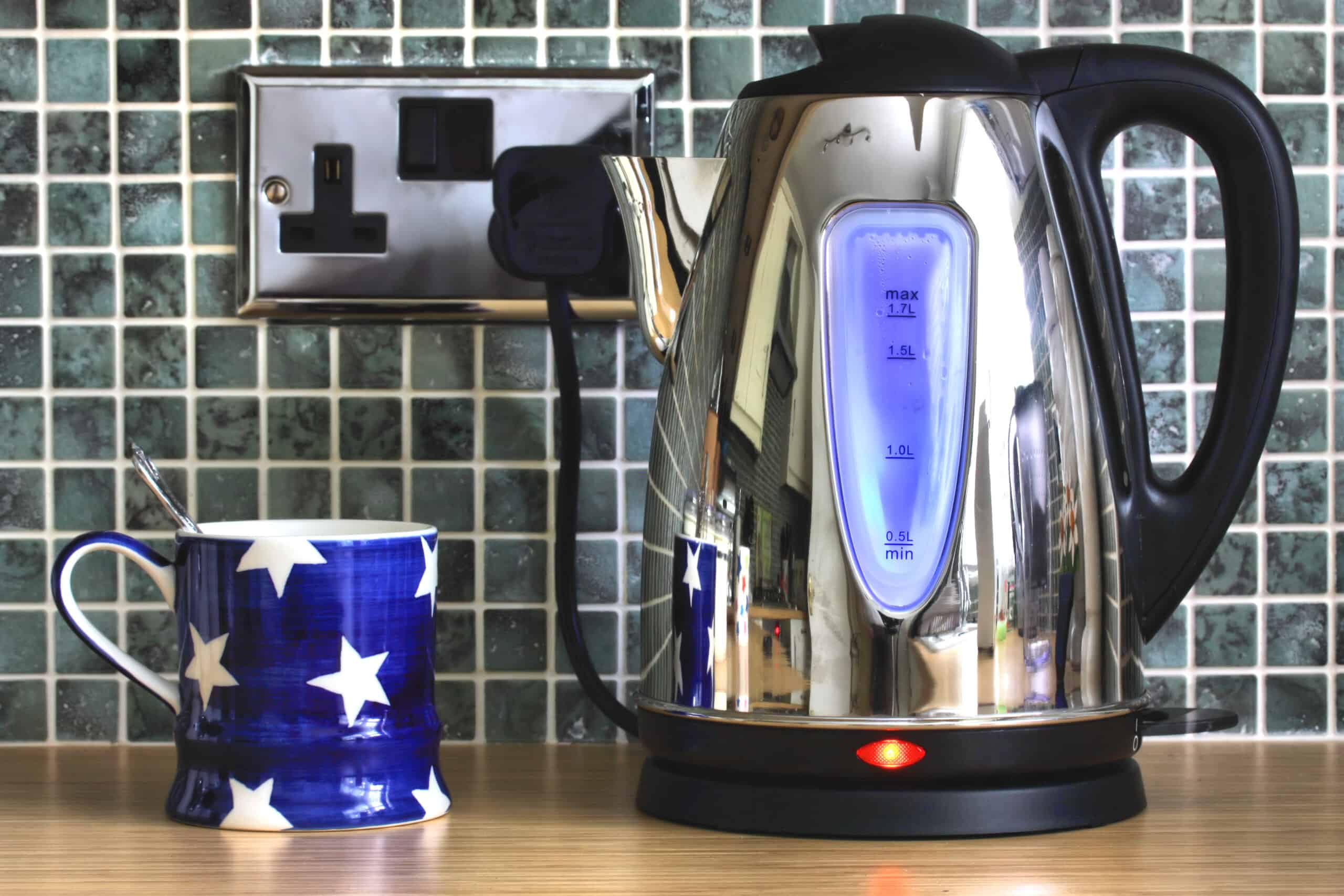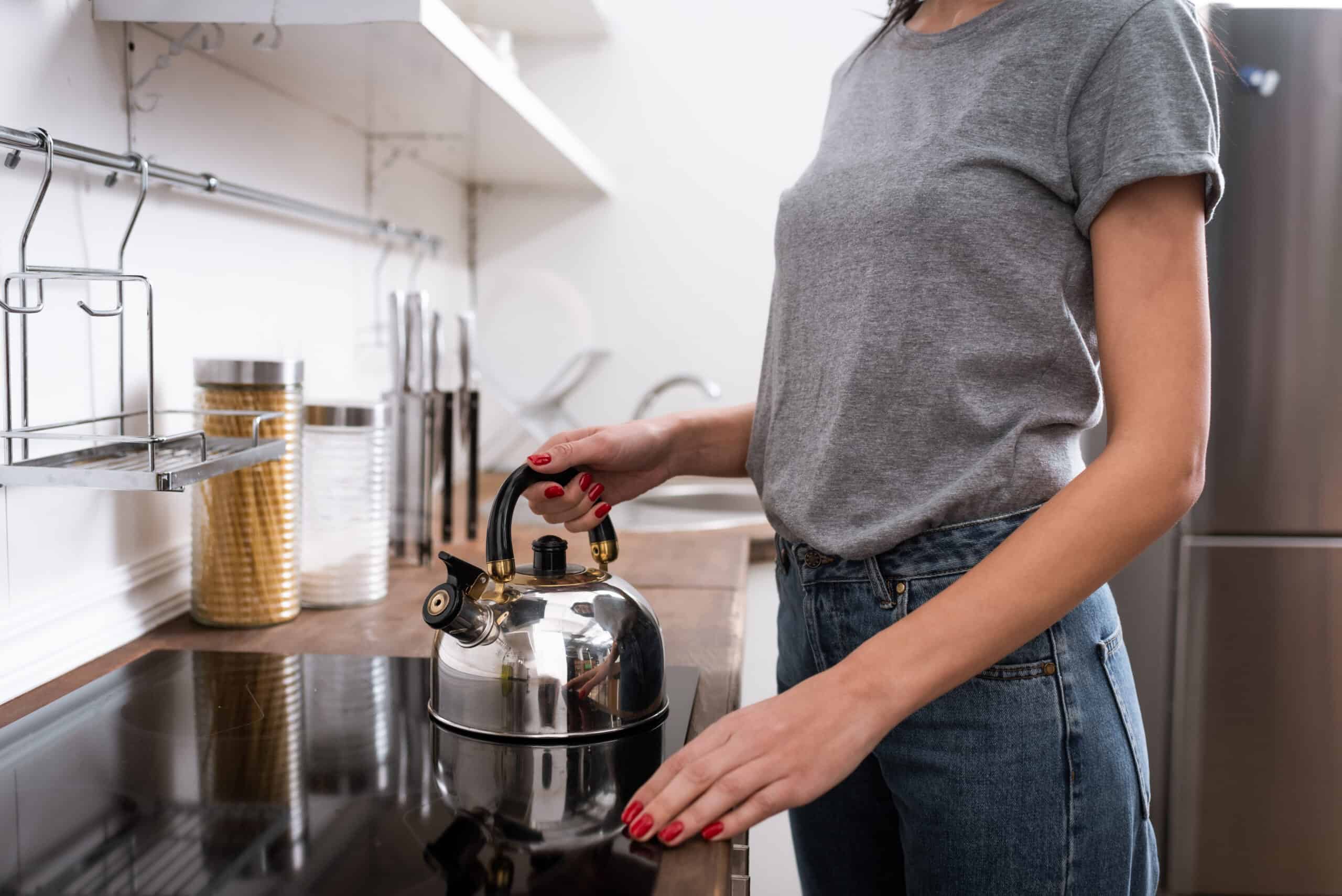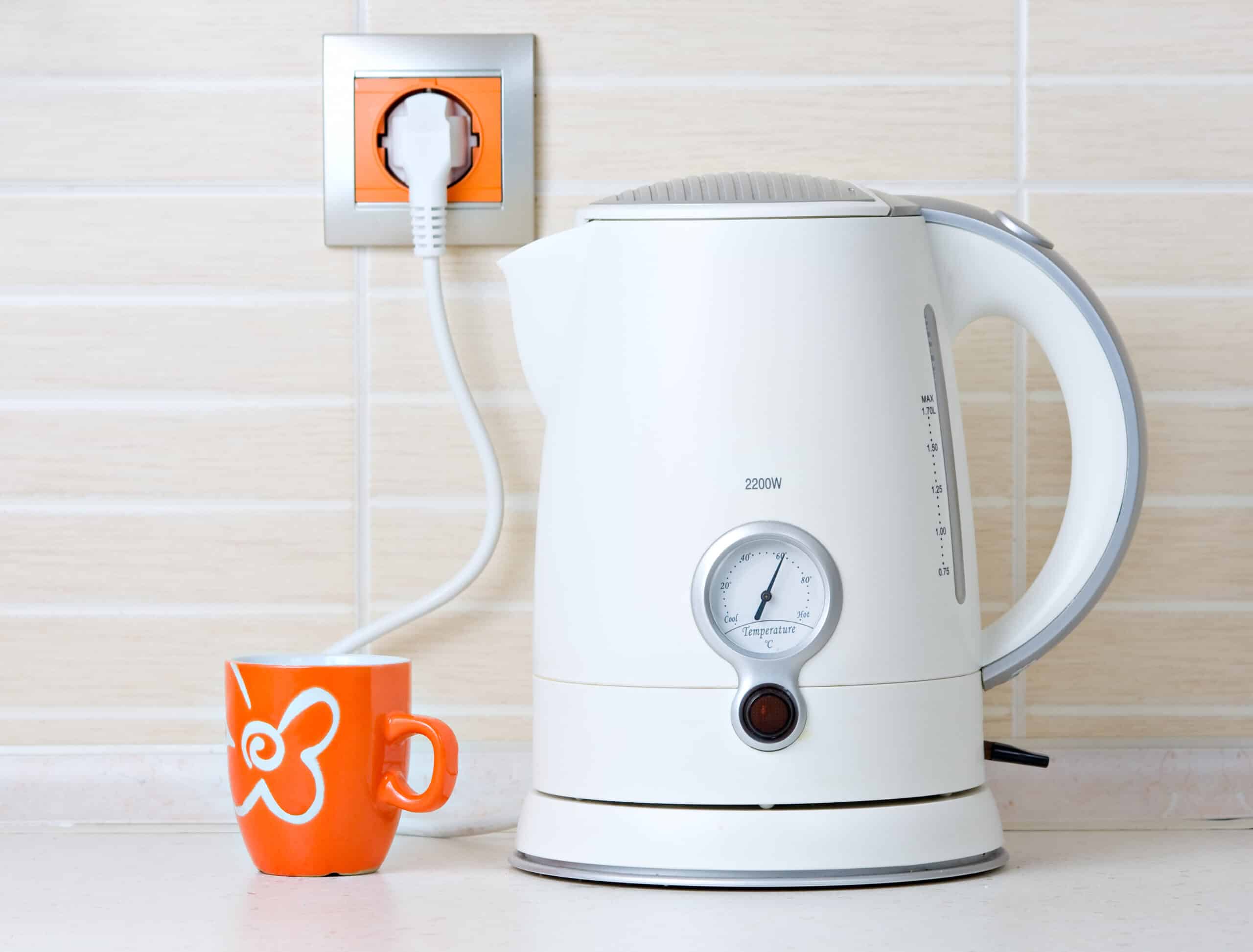A smoking frying pan is bad. Not only does it ruin your food, but it also fills your house with smoke, which can lead to a gross smell or, even worse, your fire alarm going off! To prevent this from happening in the future, you need to understand why pans smoke in the first place.
Your frying pans smoke because it’s likely they’re overheated. Often, this happens when the oil inside a hot pan begins to break down, leading to smoking. Frying pans may also smoke if there’s food or soap residue left in them.
Keep reading as I explain why your frying pans may be smoking.
I’ll also discuss how you can prevent your frying pan from smoking in the future and whether or not non-stick pans smoke. Lastly, I’ll teach you how to fry without filling up your entire house with gross smoke.

Why Do Frying Pans Smoke?
Frying pans typically smoke when they’re overheated. They can also smoke if you’re heating your cooking oil past its smoking point. The pans’ seasoning is another possible reason your pans are smoking. Also, the pans can still smoke if there’s a residue left on them after cleaning.
Let’s look at each of these in more detail below.
Your Frying Pan Is Smoking Because It’s Overheated
Empty pans can reach high temperatures very quickly. If you accidentally heat your pan too high, it may begin to smoke.
Pans are even more likely to smoke when they have oil in them. Remember to set your pan to low or medium heat when cooking. Then, you can gradually increase the heat as needed.
You’re Heating Your Cooking Oil Past Its Smoking Point
Often, it isn’t your frying pan itself that’s smoking. Instead, it’s the oil inside your pan that’s causing the smoke!
You see, all oils have a smoke point, which is the temperature at which they break down into fatty acids. As they break down, they produce smoke.
Some cooking oils have a lower smoke point than others.
For example, if you’re regularly cooking with coconut oil or virgin olive oil, your pans may smoke more frequently because these oils have a relatively low smoke point.
However, even if you use oils with a high smoke point, they’ll eventually begin to smoke if heated at a high temperature for an extended period.
The Frying Pan Has Seasoning
When you buy cast iron frying pans, they usually come “seasoned.”
Seasoned pans are those that have had several layers of oil baked onto them, forming an exterior coating. This coating makes it less likely that food will stick to your pans. Additionally, it helps prevent them from rusting.
However, this layer can break down if it gets too hot, which will cause the pan to smoke.
While most cast iron pans can withstand pretty high temperatures, it’s still possible for them to smoke if heated too high for too long.
There’s a Residue Left Inside the Pan After Cleaning
If you don’t clean your pans thoroughly enough, soap, oil, or food residue may be left inside them after cleaning.
The next time you cook, this residue will still be inside of your pans. Once your pans get too hot, the residue will start to burn off, causing the pan to smoke.
How Do I Stop My Frying Pan Smoking?
The best way to stop your frying pan from smoking is to start with your pan at a low temperature. Then, you can gradually increase the heat to your desired level. However, avoid ever putting the burner on high heat.
No matter which oil you use, it’ll eventually smoke if it’s cooked on high.
Therefore, you should keep your pan in the low-medium to the medium-high range whenever possible since this will help prevent your oils and foods from burning.
While cooking, pay close attention to the pan to ensure it doesn’t get too hot.
If you want to be extra careful, buy a cooking thermometer to test your pan’s temperature. This will let you know if it’s getting too hot so you can turn it down before it starts to smoke up your house.
Once you’ve cooked your meal, clean your pans thoroughly. You want to ensure there isn’t any greasy residue left over that’ll cause smoke the next time you cook.
If you have aluminum, stainless steel, or copper pans, clean them with mild soap and warm water. Then, dry them with a clean towel.
If you have a cast-iron pan, scrub it thoroughly with a sturdy scrub brush. If necessary, you can use a bit of soap.
Then, rinse it off with some warm water. Once it’s clean, dry it thoroughly to prevent rusting, then re-season it with some vegetable oil to help keep it in tip-top shape.
By cooking at a reduced temperature and thoroughly cleaning after each use, you can prevent your pans from smoking.
Check out this YouTube video that shows how to use a pan thermometer.
Do Non-Stick Frying Pans Still Smoke?
Non-stick pans have a coating on them, which is what makes them “non-stick.” However, they don’t do well with high temperatures.
The coating of a non-stick pan can only be heated to a specific temperature. So, does this mean non-stick frying pans can still smoke?
Non-stick frying pans can still smoke if you overheat them. This will deteriorate the pans’ coatings, thus, causing them to smoke. If you do this regularly, all of the non-stick coatings will burn off, which will ruin your pans.
Most non-stick pans will begin to deteriorate when heated over 348°C (660°F).
However, this may vary depending on the brand of your pans. So, read your pans’ manuals to learn about their specific temperature restrictions.
How Can I Fry Without Smoking Out the House?
When you fry, you use a lot of oil. So, if you aren’t careful, it’s easy to produce a lot of smoke. However, don’t worry. It’s possible to fry without smoking out your entire house.
You can fry without smoking out the house by selecting the correct oil. Consider using vegetable, peanut, or canola oil since they have high smoke points, around 400°F (204.44°C). You may also want to buy a thermometer to ensure you don’t heat the oil too much.
I personally like to keep the pot between 250°F to 325°F (110°C to 162.78°C), which is around medium on most stoves.
Some foods, like fried chicken, have water in them, reducing the heat of the oil. To get the best fry, you need to continuously monitor your pot to ensure that it maintains a consistent temperature.
As long as you follow these steps, you should be able to fry your food without setting off your smoke alarm!
Final Thoughts
There are many reasons your frying pans may be smoking. The most likely reason is that you’re overheating your pans. This causes your oil’s temperature to rise past its smoking point, leading to one smoky kitchen.
To prevent this, you should cook at a lower temperature and use high smoking point oils, like peanut, vegetable, or avocado oils.
Additionally, you should clean your pans thoroughly after each use to avoid leaving any residue that could cause smoke the next time you cook.
I hope this article has helped you to start using your pans smoke-free.





